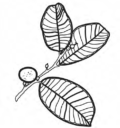Project Árboles de Vida
With the support of the Yves Rocher Foundation, we launched in 2018 a reforestation and agroforestry project called Árboles de Vida (“Trees of Life”) in the Yucatan Peninsula of Mexico. During the first phase of the project (2018-2020) we successfully planted 80,000 trees and have the objective to plant 195,000 trees during its second current phase (2021-2024). While the focus is on the Maya Nut Tree (Brosimum alicastrum), we also plant a diverse selection of species identified by participating communities that are particularly beneficial from an agroforestry and bio-cultural standpoint.
As a true grassroots initiative, the project was developed in close consultation with rural communities in order to respond directly to the needs and challenges identified by the communities themselves. Most notably, these include nutritional diversification, expanded socioeconomic opportunities and diversified agricultural production given the increasing challenges affecting traditional crop farming due largely to climate change.
For the long-term, Árboles de Vida aims to help expand local agroforestry practices, contribute to environmental regeneration and strengthen sustainable livelihoods for local communities. By forming strong local partnerships, our hope is that these efforts will take on a local and sustainable life of their own, continuing to be adopted and replicated over time.
Research and strengthening knowledge both locally and abroad is another core component of our project. In addition to organising local trainings and workshops, educational activities and research exchanges, we have also thus far supported three European Masters students research on such themes as: investigating oxalogenous species in the Yucatan that have strong agroforestry potential; understanding the social context in communities in regards to integrating Maya Nut products into local diets as well as socioeconomic activities; researching the potential of productive agroforestry hedges as an adaptation strategy to help mitigate the adverse impacts of climate change on local farmer agricultural production.
The project achieves its objectives primarily by:
- Setting up nurseries in communities (we currently have three principal nurseries and have also supported smaller artisanal nurseries in more rural settings);
- Coordinating transplanting campaigns with neighbouring communities;
- Organising capacity-building workshops for participating communities;
- Developing a Youth & School Programme to engage youth and inform the creation of pedagogical materials based on Mayan bio-cultural heritage;
- Placing strong emphasis on the participation of women in all levels of project management and implementation;
- Collaborating with universities in Europe and in Mexico to further research on oxalogenous trees as well as agroforestry best practices and opportunities.
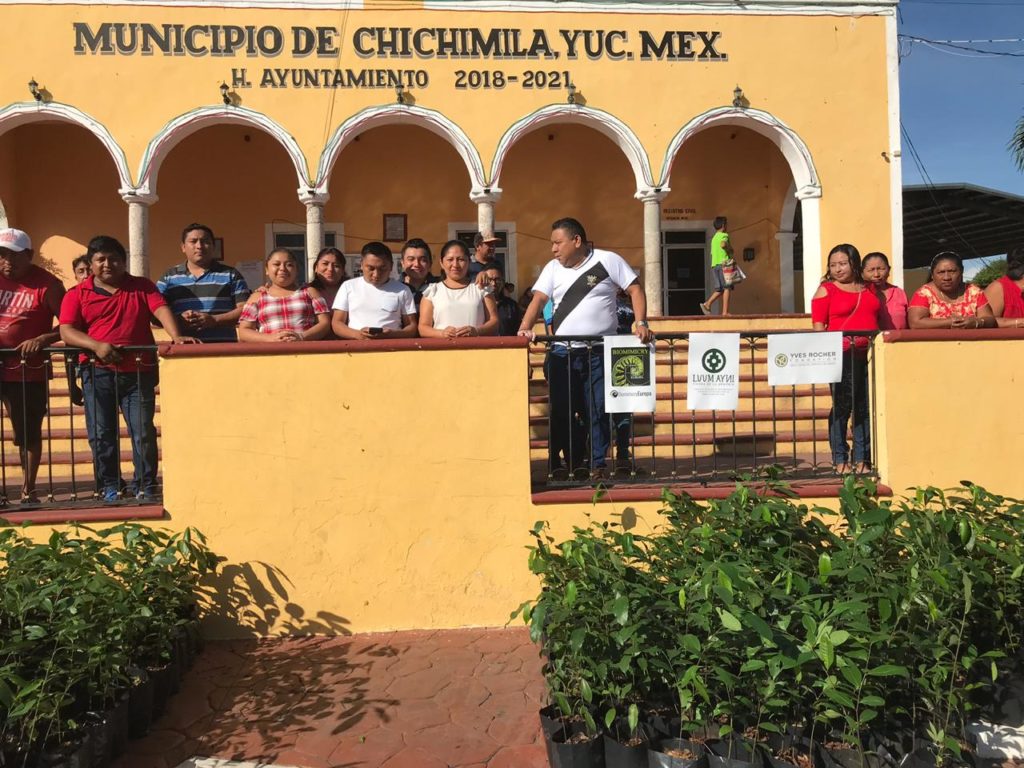
Social + Environmental Context
The Árboles de Vida project currently works with three primary nurseries which supply trees to over 20 communities in Quintana Roo and Yucatan State.
The interior of the Yucatan Peninsula was once a densely forested area; however it has experienced considerable deforestation and land degradation in recent decades due to « Heneken” (Sisal, Agave sisalana) production and other monoculture activities, cattle ranching and large-scale logging projects to support the Peninsula’s rapid development and tourism industry (which has grown to dominate the economy). The Peninsula has a karst landscape composed primarily of limestone rock. While there is very little surface water in the region, the Yucatan has the largest subterranean river system in the world.
The region’s harsh terrain and lack of surface water make agricultural activity challenging and limited in scope. Traditional agriculture, which relies heavily on corn production, is further compromised by the effects of climate change (including higher temperatures, longer periods of drought and irregular rain and weather patterns). Food insecurity is therefore becoming a growing concern for local communities, who could previously provide for themselves at subsistence level.
While Maya Nut was integral in the diets of Ancient Mayans and Aztecs (it is even mentioned in their sacred texts), in contemporary times it remains an underexploited crop with enormous potential for re-introduction into local culture and use. Maya Nut Tree is particularly well-suited to the region’s terrain and climate, as its long vertical tap root can draw water from the underground river system, enabling tree survival and the production of nutritious nuts even during periods of severe drought.
Many of the project’s participating communities also cultivate honey from the indigenous and endangered melipona bee species, which produces a honey rich in medicinal and health properties. In recognition of the importance of native bees for wider ecological health, the project aims to help strengthen the link between reforestation and beekeeping.
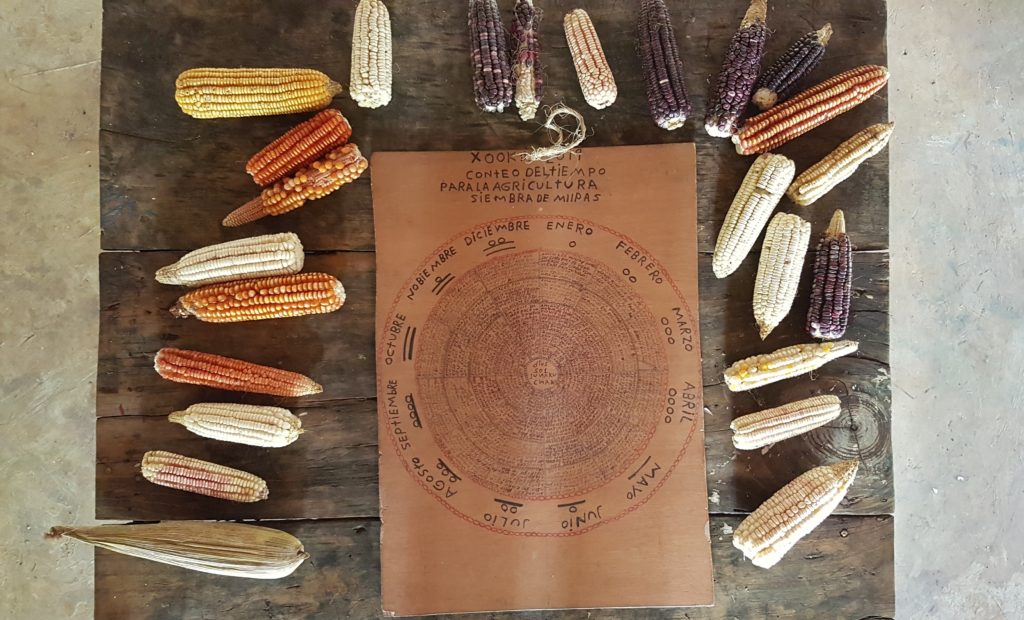
Partners in the Field
Some pictures
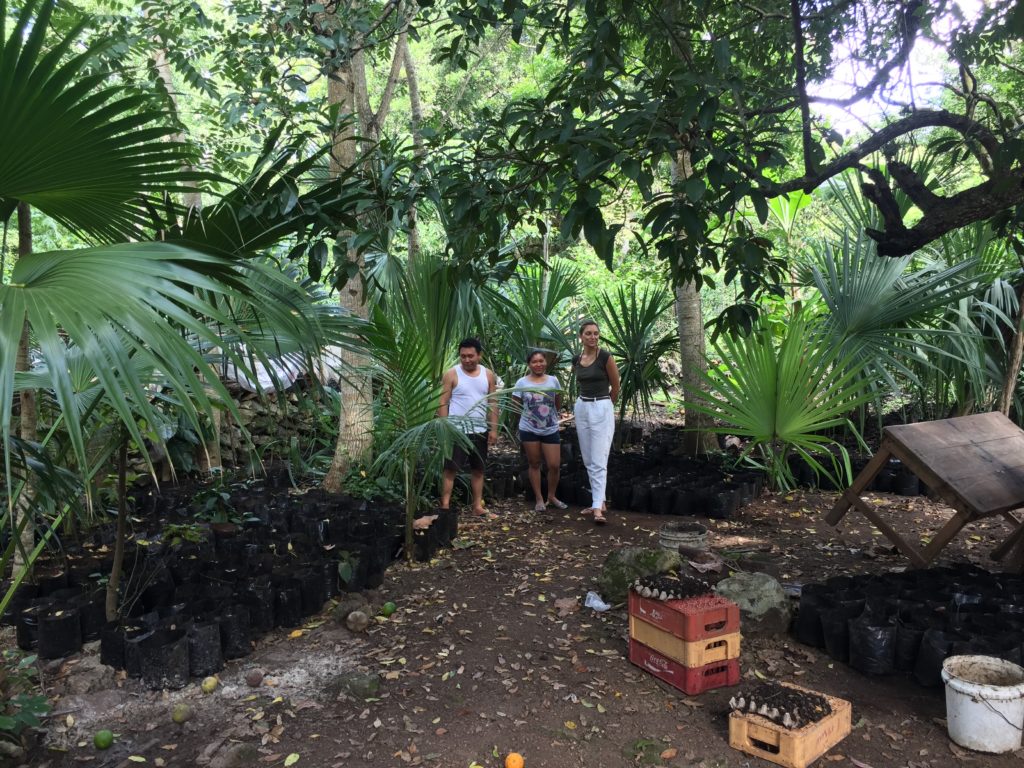
The Xocén nursery with Maricela Nahuat Tun, her brother Miguel, and Masters student Jeanne Caspar, who was supported by Árboles de Vida to conduct research on the socioeconomic potential of the Mayanut tree. 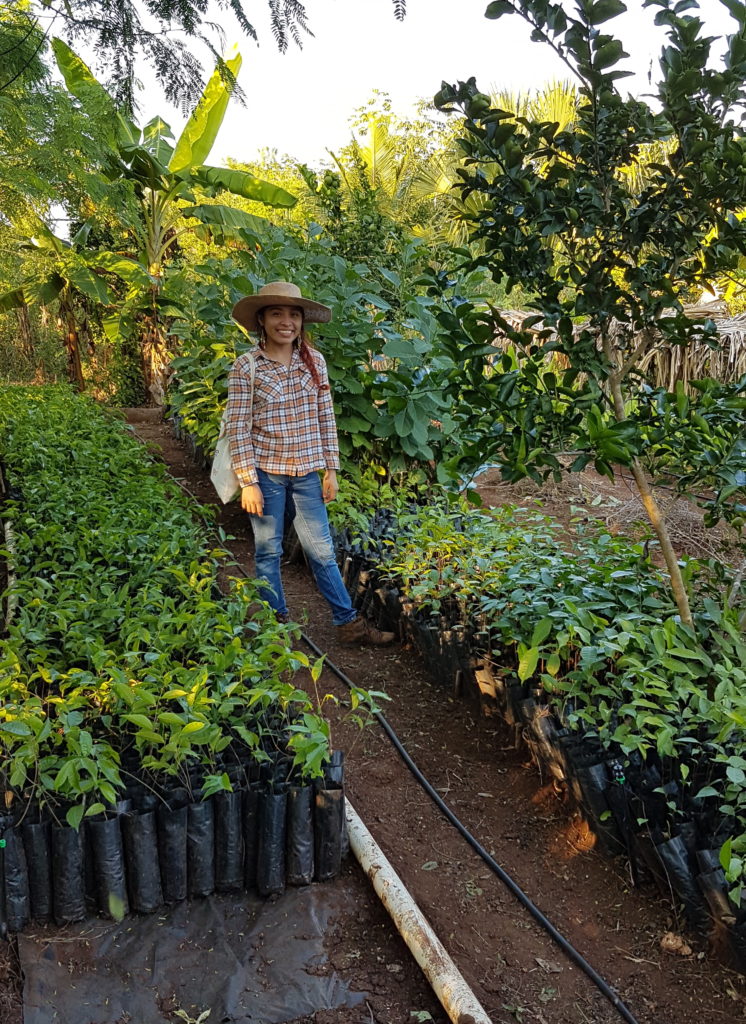
Lenny Suarez Caamal, a graduate of the Mayan Intercultural University and intern with PROTEINNA, in the Santa Gertrudis nursery surrounded by Mayanut saplings. 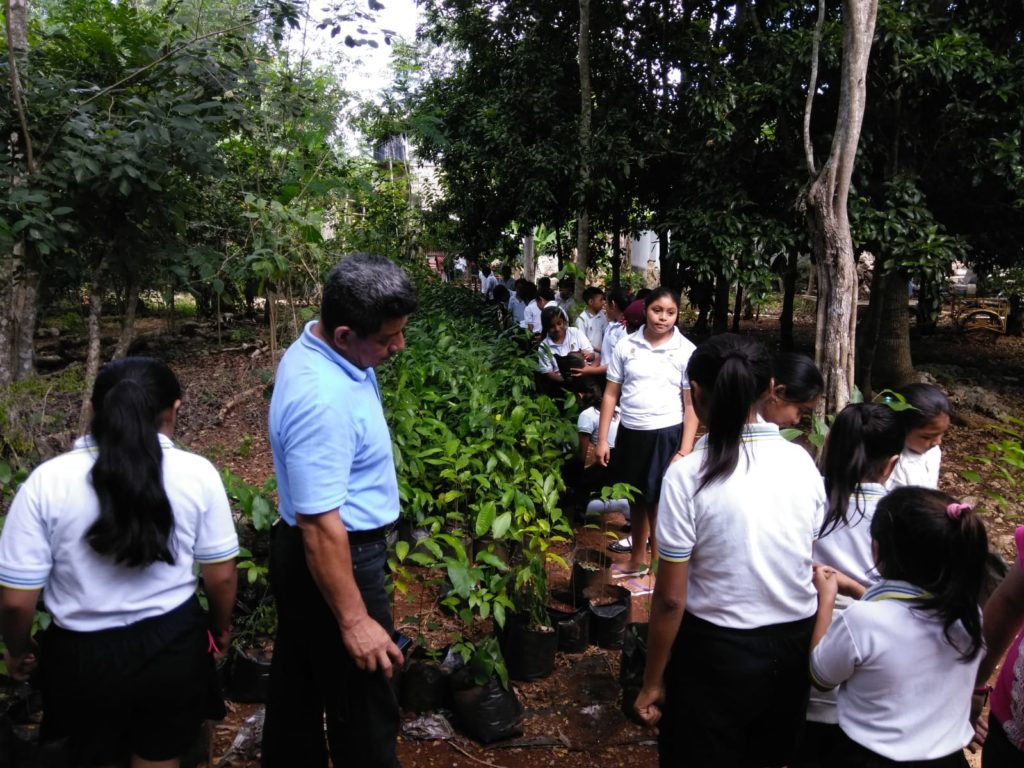
A local school visit to the Sahcab Muycuy nursery, where the students selected trees to transplant on school grounds. 
Community tree repartition event organised by Luum Ayni in partnership with the Chichimila Municipality. 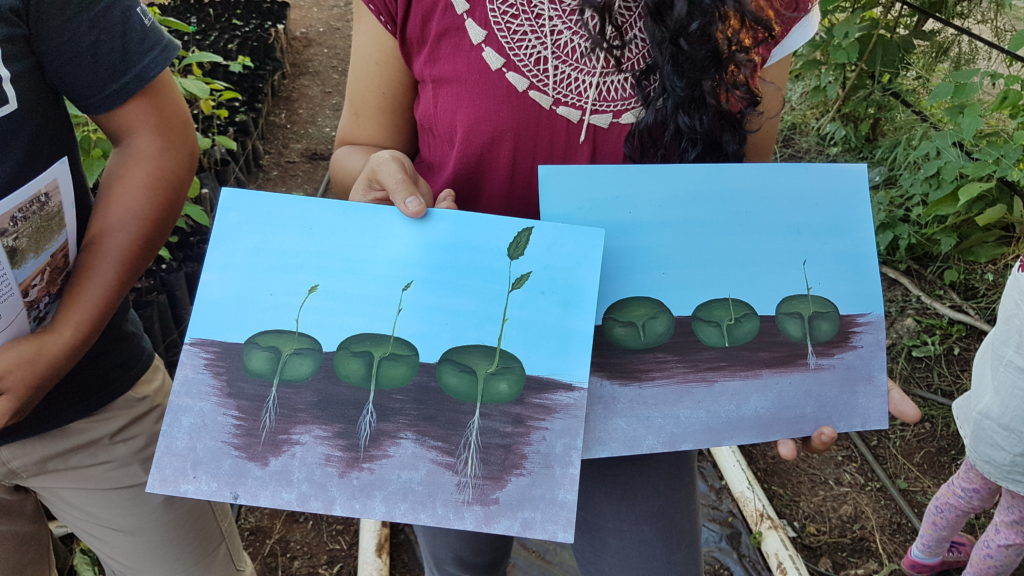
Drawings of Mayanut seed growth by Sergio Ucán, a participating youth with PROTEINNA. 
The Mayan agricultural calendar Xookin, traditionally created every January in order to chart the rainy seasons and weather patterns for each month of the year ahead.
